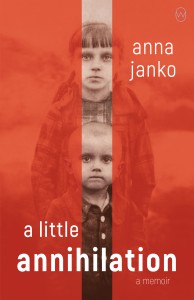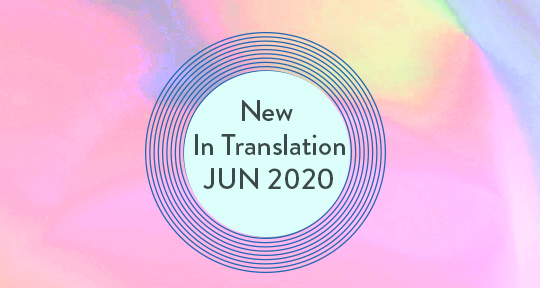This month, our selections of newly published literature from around the globe seem to cohere under the umbrella of trauma and memory, and the way they inevitably turn into narratives in the process of retrospection. From a Polish work of non-fiction that traces the sufferings of Poles during WWII, to the journals that document a Jewish immigrant in Brazil, to the strange and unspoken secrets of a small village in Japan—these works are of both documentation and imagination.

A Little Annihilation by Anna Janko, translated from the Polish by Philip Boehm, World Editions, 2020
Review by Katarzyna Bartoszyńska, Educational Arm Assistant
It is a grim fact, one that acquires increasing urgency in recent years, that those who were alive to experience the horrors of the Second World War are getting older: before long, we will no longer be able to talk to people who have direct experience of those times. Thus, we are increasingly grappling with the problem of second-generation memory: with the matter of how the descendants of survivors preserve and pass on the stories of the past for future generations, and with questions as to whether, or how, those descendants inherit the trauma of their ancestors. Anna Janko’s A Little Annihilation is a powerful meditation on these issues.
In this reckoning with the past, Janko describes the destruction of the Polish village of Sochy by the German military on Tuesday, June 1, 1943: the inhabitants massacred and buildings burned to the ground over the course of a mere few hours. Nine-year-old Teresa Ferenc, Janko’s mother, was among the survivors. In recounts of conversations, her mother describes her memories of that day—most especially, witnessing the death of both of her parents. Janko also chronicles interviews with other survivors from the village, interweaving their stories and noting the discrepancies between them, while describing efforts to tabulate the exact number of lives lost. The impossibility of establishing precise details is a crucial reminder of the intertwined nature of history and memory, a refutation of the common notion of their opposition, as well as a reflection on the challenges of documenting a massacre.
For some English-language readers, Janko’s text may be the first work they have encountered that discusses the sufferings of non-Jewish Poles during the Second World War. For Americans especially, to learn about Nazi atrocities is generally to learn about their efforts to exterminate European Jews, without a detailed understanding of how their eugenicist ideology shaped their policies and strategies in a broader variety of ways. Confusion over the fact that Poland was occupied territory has led to mistaken statements about “Polish death camps” (most notably, perhaps, when President Barack Obama used the term during a ceremony awarding the Presidential Medal of Freedom to Jan Karski in 2012; he later apologized for the error)—as Janko angrily reminds readers. “In my opinion it would be best if Germany gathered up all the camps they left behind in Poland. So that no one would be mistaken any longer.” READ MORE…

